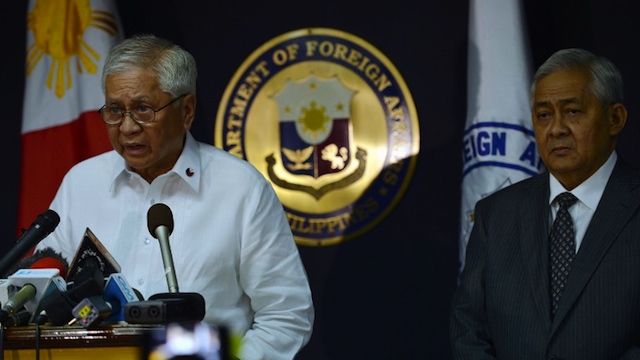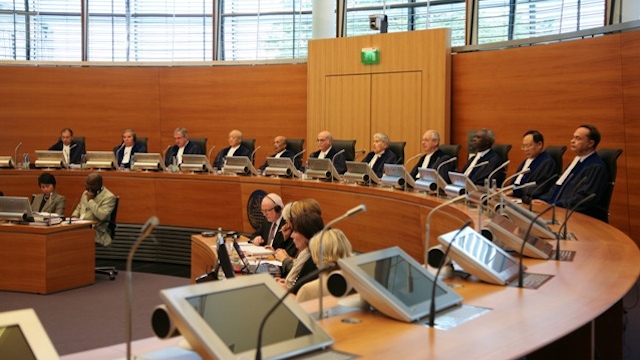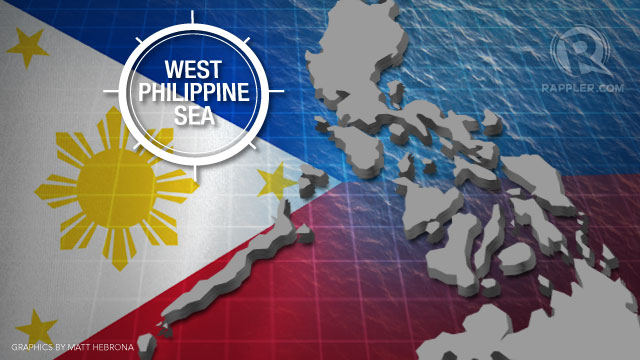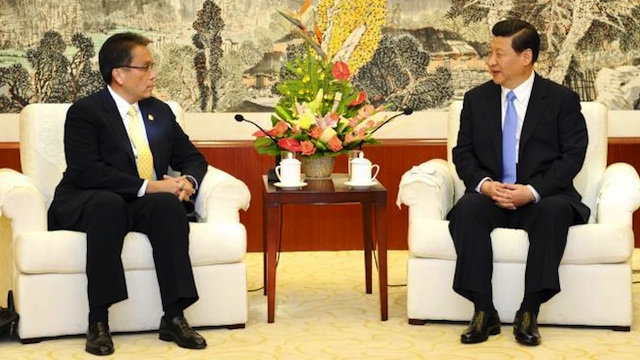SUMMARY
This is AI generated summarization, which may have errors. For context, always refer to the full article.

MANILA, Philippines (UPDATED) – Filipinos should support the decision to take China to court over maritime disputes in the West Philippine Sea to “take action against an intruder,” the Department of Foreign Affairs (DFA) said on Wednesday, January 23.
“If someone forces himself into your house and tries to unlawfully take away what belongs to you, should you not take action against the intruder? Our action is in defense of our national territory and maritime domain,” the DFA explained in a set of prepared replies to queries by the media.
The department added that “one cannot put a price in the concerted effort of the Filipino people and government in defending our patrimony, territory, national interest and national honor.”
According to the DFA, the Philippines exhausted all other means to resolve the issue in the South China Sea (West Philippine Sea) and decided to raise the row with the UN-sponsored International Tribunal on the Law of the Sea (ITLOS) to “challenge the unlawful claim of China under their 9-dash line [map.]“
“We feel the time to act is now. If we do not act now, we will be in default,” the department said.

Arbitration to take 3-4 years
The legal action — to which China objects — is part of the Aquino administration’s policy to resolve the territorial dispute with “rules-based approach based on international law, especially [the] United Nations Convention on the Law of the Sea (UNCLOS),” the DFA said.
The department expects that ITLOS will issue such a ruling that directs China to respite the country’s “sovereign rights” and jurisdiction over the 200-nautical-mile Exclusive Economic Zone (EEZ), continental shelf, contiguous zone, and all territories in the West Philippine Sea.
China must “desist from undertaking unlawful acts that violate our rights,” the DFA said.
But it won’t be a short process.
“Based on the cases so far handled by international tribunals on maritime disputes, the case [will] take 3-4 years” to be finalized.
The process has already begun by notifying China and giving a Notice and Statement of Facts, both of which were presented on Tuesday through a note verbale to Chinese Ambassador to the Philippines Ma Keqing when she was summoned to the DFA.
After that, a 5-member arbitration panel will be appointed by ITLOS to hear the arguments of the two concerned parties.

PH has ‘very good case’
The DFA insisted that after pursuing the political, diplomatic and legal approaches, at this stage the legal track “presents the most durable option to defend the national interest and territory on the basis of international law.”
The government is confident in a favorable ruling: “We believe we have a very good case under international law.”
“In any legal action,however, there are many different factors to consider. What is more important is that we are able to present our case against China and defend our national interest and maritime domain before an independent international tribunal. We expect international law to be the great equalizer,” the DFA said.
Asked about why other claimant countries such as Brunei, Malaysia or Vietnam had not decided on a similar strategy to settle their disputes with China, the department noted that “the Philippines is taking action based on its national interest and not on the actions or non-action of other countries.”
New ally Japan also had nothing to do with it.
The DFA also counts on support from the Association of Southeast Asian Nations (ASEAN), the regional bloc which so far has been unable to produce a unified position to deal with the row in the South China Sea.
“We are counting on ASEAN to support us in finding a peaceful and durable solution”, the department said.

No ‘adverse effects’ on PH-China relations
Despite the suit filed over this territorial dispute, the DFA hopes that this will have “no adverse effects” on bilateral relations with China.
“Contentious issues will be abstracted for separate treatment. We are all for improving our economic relations with China but it should not be at the expense of surrendering our national sovereignty,” the department stressed.
And of course further escalation is unlikely.
“China is a good friend. Arbitration is a peaceful and amicable process to settle a dispute between and among friends,” the DFA.
Joint development of natural resources — like the joint venture being discussed between Philex Mining and Chinese state-owned oil giant CNOOC in Recto Bank — is however off the table for now.
“Following the Chinese model, [joint development] is a violation of the Philippine Constitution. Joint development should be in accordance with Philippine law,” the DFA said. – Rappler.com
Add a comment
How does this make you feel?
There are no comments yet. Add your comment to start the conversation.